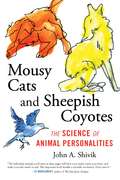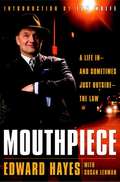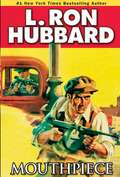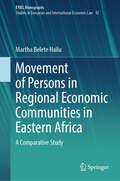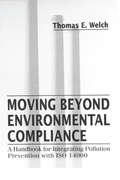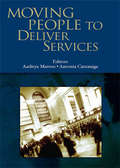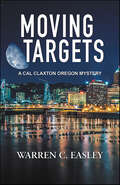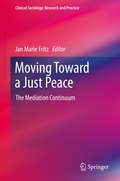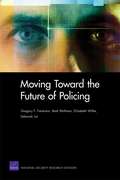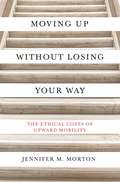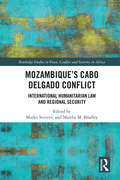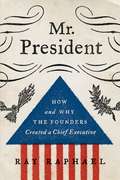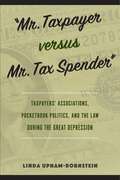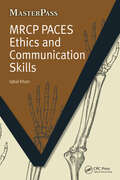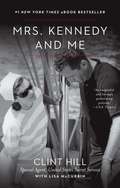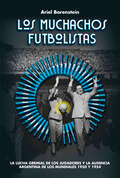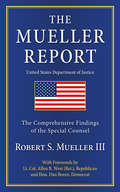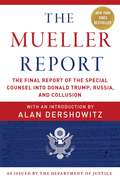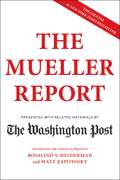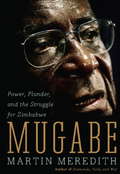- Table View
- List View
Mousy Cats and Sheepish Coyotes: The Science of Animal Personalities
by John ShivikA wildlife expert explores what science tells us about animals as unique individuals and why animal personality matters for the human-animal bond and for adaptation in nature.Why are some cats cuddly and others standoffish? Why are some dogs adventuresome, others homebodies? As any pet owner can attest, we feel that the animals we’ve formed bonds with are unique, as particular (and peculiar) as any human friend or loved one.Recent years have brought an increased understanding of animal intelligence and emotion. But is there a scientific basis for animal personality and individuality, or is this notion purely sentimental? It turns out that science has been reluctant to even broach the subject of individuality until recently. But now, a fundamental shift in scientific understanding is underway, as mainstream scientists begin to accept the idea that animals of all kinds—from beloved beasts like apes and birds to decidedly less cuddly creatures like crabs and spiders—do indeed have individual personalities.In Mousy Cats and Sheepish Coyotes, veteran wildlife expert Dr. John A. Shivik brings us stories from the front lines of this exciting new discipline. Drawing on his scientific training, as well as his storytelling gifts, Shivik serves as an accessible, humorous guide to the emerging body of research on animal personalities. Shivik accompanies researchers who are discovering that each wolf, bear, and coyote has an inherent tendency to favor either its aggressive nature or to shyly avoid conflicts. Some bluebirds are lovers, others are fighters. And some spiders prefer to be loners, while others are sociable. Unique personalities can be discovered in every corner of the animal kingdom—even among microscopic organisms. The array of personality types among all species is only beginning to be described and understood.As Shivik argues, animals’ unique personalities are important not only because they determine which animals we bond with. Individual animal traits are also fundamental but still inadequately understood drivers of evolution, adaptation, and species diversity. Ultimately, Mousy Cats and Sheepish Coyotes offers insight into the similarities humans share with animals and presents evidence of an unbroken biological connection from the smallest organisms to Homo sapiens.
Mouthpiece
by Edward HayesEdward Hayes is that unusual combination: the likable lawyer, one who could have stepped off the stages of Guys and Dolls or Chicago. Mouthpiece is his story--an irreverent, entertaining, and revealing look at the practice of law in modern times and a social and political anatomy of New York City. It recounts Hayes's childhood in the tough Irish sections of Queens and his eventual escape to the University of Virginia and then to Columbia Law School.
Mouthpiece
by L. Ron HubbardUnlock your inner Sherlock. It had been a long time since Mat Lawrence went to the city. Only something urgent could take him from his job deep in the desert managing construction of a mammoth power dam . . . something as urgent and shocking as the grisly murder of his father. His father dying wasn't a complete surprise to him; the old man was a big-time gangster. Straight-laced and hard-working, Mat had wanted nothing to do with such vices. But he does share at least one family trait, a temper that propels him to exact revenge in the traditional family style.And so, with the "help" of his father's fast-talking criminal attorney, Mat goes after the culprits. But bullets, lies and bedlam follow when he finds himself neck-deep in trouble trying to single-handedly track down his father's killers and a million dollars gone missing. ALSO INCLUDES THE MYSTERY STORIES "FLAME CITY", "CALLING SQUAD CARS" AND "THE GREASE SPOT""...is pure entertainment from first page to last with that L. Ron Hubbard touch giving this tale an enduring reading engagement from beginning to end." --Midwest Book Review
Movement of Persons in Regional Economic Communities in Eastern Africa: A Comparative Study (European Yearbook of International Economic Law #42)
by Martha Belete HailuThe book provides a comparative assessment of the legal regimes governing movement of persons in East African region. It compares the approaches used by the regional integration arrangements adopted both at the continental and sub-regional level in governing mobility matters. In doing so, it assesses the policy coherence in the RECs and evaluates the strengths and weaknesses as well as the implementation impediments. The book provides a detailed assessment of what and who is covered in multilateral regimes governing, directly and indirectly, mobilities; and identifies lesson that can be drawn from regional integration arrangements in other parts of the world- particularly the EU. The book also offers analysis of the different challenges hampering implementation of the mobility regimes adopted in the selected African RECs and proposes potential policy and legal recommendation. The book can be used by policy makers and researchers working on African integrations matters.
Moving Beyond Environmental Compliance: A Handbook for Integrating Pollution Prevention with ISO 14000
by Thomas Elliott WelchSince the U.S. Department of Energy (as well as other Federal and International agencies) will stop granting contracts to companies that fail to comply with 14000 standards, the search is on for any book that will make 14000 compliance easier. Tom Welch, with more than 20 years experience in environmental engineering and project management, provides such a book! Moving Beyond Environmental Compliance: A Handbook for Integrating Pollution Prevention with ISO 14000 is the first text to combine the best aspects of Pollution Prevention (P2), Total Quality Management (TQM), and ISO 14000, into a comprehensive "how-to" guidebook for achieving environmental compliance.The ever-increasing cost of environmental compliance as it is passed onto consumers, cuts into the profit margin and reduces an organization's competitive edge. At the very least, compliance cuts into operating budgets, and directs attention away from the primary business of an organization. This handbook demystifies the implementation of effective environmental management systems as described in the ISO 14000, and clarifies the application of effective pollution prevention methodologies that can drastically reduce this compliance burden.
Moving People to Deliver Services
by Aaditya Mattoo Antonia CarzanigaThe WTO is today dealing with an issue that lies at the interface of two major challenges the world faces, trade liberalization and international migration. Greater freedom for the "temporary movement of individual service suppliers" is being negotiated under the General Agreement on Trade in Services (GATS). Conditions in many developed economies-ranging from aging populations to shortages of skilled labor-suggest that this may be a propitious time to put labor mobility squarely on the negotiating agenda. Yet there is limited awareness of how the GATS mechanism can be used to foster liberalization in this area of services trade. At the same time there is great concern, about the possible social disruption in host countries and brain drain from poor countries. As a first step in improving our understanding of the implications of such liberalization, this volume brings together contributions from service providers, regulators, researchers and trade negotiators. They provide different perspectives on one central question: how is such liberalization best accomplished, in a way that benefits both home and host countries? The result, combining insights from economics, law and politics, is bound to be a vital input into the WTO services negotiations as well as the broader debate on the subject.
Moving Targets (Cal Claxton Mysteries #6)
by Warren C Easley"With Moving Targets, Warren Easley delivers another humdinger of a tale featuring the City of Roses. But there's so much more to like about this story than just its evocative Portland setting. Cal Claxton is a guy worth rooting for, and the gang who aid him in solving the complex and dangerous mystery involved are a fun bunch to follow. If you're not familiar with these gems out of Oregon, now's the perfect time to give Warren Easely and Cal Claxton a try. You won't be disappointed." —William Kent Krueger, award-winning, bestselling author of Ordinary Grace and the Cork O'Connor seriesWhen a young woman walks into Caffeine Central, Cal Claxton's law office in downtown Portland, he has no idea that agreeing to help her will turn his life upside down. His new client is the adopted daughter—"I'm brown and they're white"—of a Portland power couple famed for their real estate development firm and charitable work.Sculptor Angela Wingate, once a wild child, and her recently widowed mother, Margaret, had grown close after years of estrangement. A grieving Angela is hesitant but nonetheless determined to learn if Margaret's recent death was a hit-and-run while out on her morning jog in her ritzy neighborhood, or something more—like murder. Angela is frustrated at the lagging police investigation and by her growing sense of something sinister at work.As the ever-curious Cal begins to poke the principal players at Wingate Properties and to question Margaret's will, links surface between a lucrative riverfront project and a ruthless Russian ring. With a possible deadly foreign assassin in play, the threat level rises and the body count starts to grow.Decidedly outgunned, Cal enlists his Cuban friend Nando, an enterprising investigator with an on-call hacker, and a bouncer at a strip club who knows the Russian underworld. And Cal gradually develops other allies—a skeptical police captain and a city councilwoman who opposes the massive riverfront project. In a separate battle, he recruits neighbors and officials who may help him kill the reboot of a quarry operation that threatens his beloved farmhouse home in rural Dundee, a loss that would also be tragic for his beloved dog, Archie.Beneath this story run the narratives of several strong women connected to Cal who are learning just how powerful they can be as they change up their lives.
Moving Toward a Just Peace
by Jan Marie FritzMediation, the facilitated discussion of disputes and conflicts, is a flexible approach that can be used at all levels of intervention to move us toward a global peace that is both inclusive and fair. This volume, edited by Jan Marie Fritz, brings together mediators, scholar-practitioners, and a veteran diplomat to discuss the life and times of mediation in very different settings. The 14 chapters include three essays about culture, creativity, and models/theories/approaches. And there are ten chapters about practice: community mediation, mediation by police, special education mediation; interventions on behalf of widows in Nigeria; capacity-building work in Burundi; mediation in Israel; the creative facilitation of meetings; community conferencing; UN Security Council Resolution 1325 (Women and Peace and Security) and the role of civil society organizations in peacebuilding. This volume discusses the expanding roles - from prevention through societal transformation - assumed by mediators and the urgent need for mediators working at different intervention levels to learn from each other. This volume is a must read for scholars, researchers, policymakers, civil society representatives and practitioners with interests in effective dispute and conflict intervention. It particularly is recommended for those managing dispute and conflict intervention processes.
Moving Toward the Future of Policing
by Elizabeth Wilke Matt Wollman Gregory F. Treverton Deborah LaiAdvances in technology and operating concepts are driving significant changes in the day-to-day operations of future police forces. This book explores potential visions of the future of policing, based on the drivers of jurisdiction, technology, and threat, and includes concrete steps for implementation. The analysis is based on a review of policing methods and theories from the 19th century to the present day.
Moving Up without Losing Your Way: The Ethical Costs of Upward Mobility
by Jennifer MortonThe ethical and emotional tolls paid by disadvantaged college students seeking upward mobility and what educators can do to help these students flourishUpward mobility through the path of higher education has been an article of faith for generations of working-class, low-income, and immigrant college students. While we know this path usually entails financial sacrifices and hard work, very little attention has been paid to the deep personal compromises such students have to make as they enter worlds vastly different from their own. Measuring the true cost of higher education for those from disadvantaged backgrounds, Moving Up without Losing Your Way looks at the ethical dilemmas of upward mobility—the broken ties with family and friends, the severed connections with former communities, and the loss of identity—faced by students as they strive to earn a successful place in society.Drawing upon philosophy, social science, personal stories, and interviews, Jennifer Morton reframes the college experience, factoring in not just educational and career opportunities but also essential relationships with family, friends, and community. Finding that student strivers tend to give up the latter for the former, negating their sense of self, Morton seeks to reverse this course. She urges educators to empower students with a new narrative of upward mobility—one that honestly situates ethical costs in historical, social, and economic contexts and that allows students to make informed decisions for themselves.A powerful work with practical implications, Moving Up without Losing Your Way paves a hopeful road so that students might achieve social mobility while retaining their best selves.
Mozambique's Cabo Delgado Conflict: International Humanitarian Law and Regional Security (Routledge Studies in Peace, Conflict and Security in Africa)
by Marko Svicevic Martha M. BradleyThis book uses a multidisciplinary approach to examine the ongoing conflict in Mozambique’s Cabo Delgado province, which has killed thousands and displaced a million people since 2017.The book investigates how the conflict developed, the regional and international responses and its wider implications. From a broad range of African perspectives, the book addresses issues related to the conflict including international humanitarian law, regional security and terrorism. Part I assesses the regional security concerns of the conflict, the success of cross-border counter-terrorism operations and their implications for the southern African region. Part II focuses on the conflict in relation to international humanitarian law. It discusses the Islamic State's presence in the region, the trajectory and issues pertaining to sexual and gender-based violence and the relationship between the conflict and the environment. Finally, Part III examines regional and continental responses to the conflict, from the military intervention by the Southern African Development Community and Rwanda, to the perceived inaction of the African Union.The first comprehensive analysis of the conflict in Cabo Delgado, this book will be of interest to scholars and practitioners of international humanitarian law, security, African politics, war and conflict studies, terrorism and human rights.
Mozi: A Study and Translation of the Ethical and Political Writings
by John Knoblock Jeffrey RiegelThis volume is a study and translation of thirty-six chapters in the Mozi that are concerned largely with political and ethical philosophy; the remaining seventeen chapters are related to military defense and logic.
Mr. Justice Black and His Critics
by Tinsley E. YarbroughMany jurists give lip service to the idea that judicial interpretation of constitutional provisions should be based on the intent of the framers. Few, if any, have been as faithful to that conception as Hugo Black. As U.S. senator from Alabama, Black was a vigorous critic of the Supreme Court's use of the Constitution as a weapon against the Roosevelt New Deal. Once on the court he played a leading role in overturning those decisions and in attempting to establish for freedom of speech and other guarantees the interpretation he (and others) believe was warranted by the language and intent of the framers.Late in his career, however, Black's commitment to literalism and intent led him to assume apparently conservative positions in civil liberties cases. In an era characterized by growing acceptance of the belief that judges should adapt the Constitution to changing social and ethical perceptions, many came to regard Black's position as unrealistic and irrelevant.Tinsley E. Yarbrough analyzes Black's judicial and constitutional philosophy, as well as his approach to specific cases, through the eyes of Black's critics (such as Justices Frankfurter and Harlan) and through an assessment of scholarly opinion of his jurisprudence. The result is a stimulating and provocative addition to the study of Justice Black and the Supreme Court.
Mr. President: How and Why the Founders Created a Chief Executive
by Ray RaphaelThe little-known story of the dramatic political maneuverings and personalities behind the creation of the office of the president, with ramifications that continue to this day. On June 1, 1787, when the Federal Convention first talked of establishing a new executive branch, James Wilson moved that "the Executive consist of a single person." To us this might sound obvious, but not so at the time. Americans had just won their independence from an autocratic monarch, and they feared that a single leader might commandeer power or oppress citizens. Should the framers even flirt with one-man rule? For the first and only time that summer, there was silence. Not one of the loquacious delegates dared speak up. Eventually Benjamin Franklin rose, then others. James Madison, Alexander Hamilton, and George Mason joined the debate, and for three months their deliberations continued. By early September the framers had made up their minds. A chief executive, the "president," would be appointed by Congress to serve for seven years. He could not be reelected, and his powers were tightly constrained. He could neither negotiate treaties nor appoint Supreme Court justices and ambassadors. The Senate would do all that. Suddenly, less than two weeks before the convention adjourned, all this changed. How? And who made it happen? Enter Gouverneur Morris, the flamboyant, peg-legged hero of this saga, who pushed through his agenda with amazing political savvy and not a little bluster and deceit. For the first time, by focusing closely on the give-and-take of the convention's dynamics, Ray Raphael reveals how politics and personalities cobbled together a lasting, but flawed, institution. Charting the presidency as it evolved during the administrations of Washington, Adams, and Jefferson, Raphael shows how, given the Constitution's broad outlines, the president's powers could easily be augmented but rarely diminished. Today we see the result--an office that has become more sweeping, more powerful, and more inherently partisan than the framers ever intended. And the issues of 1787--whether the Electoral College, the president's war powers, or the extent of executive authority--continue to stir our political debates.
"Mr. Taxpayer versus Mr. Tax Spender": Taxpayers' Associations, Pocketbook Politics, and the Law during the Great Depression
by Linda Upham-BornsteinDuring the Great Depression, the proliferation of local taxpayers’ associations was dramatic and unprecedented. The justly concerned members of these organizations examined the operations of state, city, and county governments, then pressed local officials for operational and fiscal reforms. These associations aimed to reduce the cost of state and local governments to make operations more efficient and less expensive. “Mr. Taxpayer versus Mr. Tax Spender” presents a comprehensive overview of these grassroots taxpayers’ leagues beginning in the 1860s and shows how they evolved during their heyday in the 1930s. Linda Upham-Bornstein chronicles the ways these taxpayers associations organized as well as the tools they used—constructive economy, political efforts, tax strikes, and tax revolt through litigation—to achieve their objectives. Taxpayer activity was a direct consequence of—and a response to—the economic crisis of the Great Depression and the expansion of the size and scope of government. “Mr. Taxpayer versus Mr. Tax Spender” connects collective tax resistance in the 1930s to the populist tradition in American politics and to other broad impulses in American political and legal history.
MRCP Paces Ethics and Communication Skills
by Iqbal KhanNew primary care organisations are demanding personal and practice-based professional development plans to underpin revalidation of clinicians' professional registration or accreditation of practices. This workbook is unique in showing the reader how to combine and integrate the two and matches national guidelines that explain how to apply guidance in real life for maximum effect. With action plans key facts and references it emphasises how to prioritise learning needs provides examples of plans and focuses on a variety of clinical and organisational topics. It will enable general practitioners nurses therapists and practice managers to design and apply personal development plans as individuals and as multidisciplinary practice teams.
Mrs. Kennedy and Me: An Intimate Memoir
by Clint Hill Lisa MccubbinThe #1 New York Times bestselling memoir by Clint Hill that Kirkus Reviews called “clear and honest prose free from salaciousness and gossip,” Jackie Kennedy’s personal Secret Service agent details his very close relationship with the First Lady during the four years leading up to and following President John F. Kennedy’s tragic assassination.In those four years, Hill was by Mrs. Kennedy’s side for some of the happiest moments as well as the darkest. He was there for the birth of John, Jr. on November 25, 1960, as well as for the birth and sudden death of Patrick Bouvier Kennedy on August 8, 1963. Three and a half months later, the unthinkable happened.Forty-seven years after the assassination of President John F. Kennedy, the one vivid image that never leaves Clint Hill’s mind is that of President Kennedy’s head lying on Mrs. Kennedy’s lap in the back seat of the limousine, his eyes fixed, blood splattered all over the back of the car, Mrs. Kennedy, and Hill as well. Sprawled on the trunk of the car as it sped away from Dealey Plaza, Hill clung to the sides of the car, his feet wedged in so his body was as high as possible. Clint Hill jumped on the car too late to save the president, but all he knew after that first shot was that if more shots were coming, the bullets had to hit him instead of the First Lady. Mrs. Kennedy’s strength, class, and dignity over those tragic four days in November 1963 held the country together.This is the story, told for the first time, of the man who perhaps held her together.
Los muchachos futbolistas: La lucha gremial de los jugadores y la ausencia Argentina de los mundiales 1950 y 1954
by Ariel BorensteinCon entrevistas y una gran investigación en medios de la época, textos historiográficos y clásicos del cine argentino, Borenstein reconstruye la historia de los desencuentros entre el país peronista y la principal pasión popular: el fútbol. Un episodio central es el de la huelga que entre 1948 y 1949 protagonizaron entre otros el ya legendario Pedernera y el ascendente Di Stéfano. Los muchachos futbolistas cuenta la historia de una década de paradójicos desencuentros entre el primer peronismo y la principal pasión popular de Argentina. La de los años en que los jugadores consolidaron un proceso de profesionalización que se había iniciado en los 30 y se sindicalizaron. Clave en esta época fue la huelga de futbolistas que -entre 1948 y 1949- encabezó un ícono como Adolfo Pedernera -el de La Máquina de River-, tras la cual un centenar de jugadores se fueron al exilio, provocando una sangría en las filas locales mientras el fútbol brasileño despegaba y el colombiano vivía una era dorada gracias a la participación de los argentinos que recalaron allí. ¿Por qué, a pesar de lo que significaba el fútbol para la sociedad de la época y de la activa promoción del deporte que se hizo desde el gobierno, Argentina no participó en los mundiales de Brasil 1950 ni de Suiza 1954? ¿Cómo se explica que Alfredo Di Stéfano, el primer crack global, el más genuino antecesor de Messi y Maradona, haya hecho su carrera en Colombia y en España y ya no volviera a jugar en su tierra? Ariel Borenstein indaga en las circunstancias de este atípico momento en el que faltó sincronización entre dos de los fenómenos que definen al país, tendiendo inevitablemente un puente entre nuestros "muchachos", los que nos volvieron a ilusionar, y aquellos primeros, inolvidables y combativos "muchachos" del tango y la marcha peronista.
The Mueller Report: The Comprehensive Findings of the Special Counsel
by Robert S. Mueller IIIThe historic report on the investigation into Russian interference in the 2016 presidential election—with forewords by two former congressmen. In the future, The Mueller Report may be judged as the most important document of our time. And no matter where you reside on the American political spectrum, you will probably agree that it will have far-reaching implications for the balance of power among the three coequal branches of government that create, administer, and apply the laws of our republic. This edition includes forewords by Lt. Col. Allen B. West (Ret.), and the Hon. Dan Boren, both former US congressmen. Having served on opposite sides of the aisle while Robert Mueller served as director of the FBI, they hold insight into the leadership of the organization created expressly to investigate the questions answered by this report.
The Mueller Report: The Final Report of the Special Counsel into Donald Trump, Russia, and Collusion
by Robert S. Mueller III Special Counsel's U.S. Department of JusticeThere has never been a more important political investigation than Robert S. Mueller III's into President Donald Trump's possible collusion with Russia. His momentous findings can be found here, complete with: <br>The 300+ pages of the historic report, as released by the Justice Department <br>An introduction by constitutional scholar, eminent civil libertarian, and New York Times bestselling author Alan Dershowitz. <P><P>The relevant portions of Title 28 of the Code of Federal Regulations, the 1999 provisions written by former acting Solicitor General Neal Katyal, which establish and regulate the powers of the special counsel. <P><P>Rod Rosenstein’s 2016 order appointing Robert Mueller III as special counsel and outlining the scope of his investigation. <P><P>Attorney General William Barr’s four-page summary of the report, as sent to Congress. <P><P>Barr's explanation of the four reasons for redacting the report, and a key for identifying them in the color-coded report <P><P>The wait is over. Robert Mueller, a lifelong Republican, has concluded his investigation and submitted its findings to Attorney General William Barr. Barr has told Congress that Mueller found no proof of collusion between the Trump campaign and Russia, and did not come to a conclusion on obstruction of justice—neither concluding the president committed a crime nor exonerating him. But Mueller’s report was over 300 pages and Barr’s summary was only four pages, raising questions about the conclusions of a historic investigation. <P><P>Special Counsel Robert Mueller III’s probe into Russian influence on the 2016 election of Donald Trump—including links between the campaign and Russian interests, obstruction of justice by President Trump, and any other matters that may have arisen in the course of the investigation—has been the focal point of American politics since its inception in May 2017. Democrats in the US House of Representatives hoped to use the report to begin impeachment proceedings, with the support of those critical of the president. Media tracked Mueller’s every move, and the investigation was subject to constant speculation by political pundits everywhere. It resulted in the indictments of Michael Flynn, Paul Manafort, Roger Stone, and many others. President Trump and his supporters affirmed that the investigation was a “witch hunt” and the product of a plot by the political establishment—the “deep state”—to delegitimize his presidency. <P><P> Mueller’s findings—at least according to Barr—allowed the latter to claim victory. But now, thanks to a subpoena from House Judiciary Committee chairman Jerry Nadler for the full report, a resolution from the House of Representatives to release the full report to the public (though blocked in the Senate by Mitch McConnell), and popular demand, it’s time for public to judge if that is true. The Mueller investigation will join Watergate, and the Mueller Report will join the 9/11 Commission Report, the Warren Report, and the Starr Report, as one of the most important in history. The Mueller Report is required reading for everyone with interest in American politics, for every 2016 and 2020 voter, and every American. It’s now available here as an affordable paperback, featuring an introduction from eminent civil libertarian, Harvard Law Professor Emeritus, and New York Times bestselling author Alan Dershowitz, who provides a constitutional, civil law-based commentary sorely needed in today’s media landscape. <P><b>A New York Times Bestseller</b>
The Mueller Report: The Full Report On The Investigation Into Russian Interference In The 2016 Presidential Election
by The Washington PostONE OF TIME&’S 100 BEST BOOKS OF THE YEAR The Crucial #1 New York Times Bestseller &“The Mueller report is that rare Washington tell-all that surpasses its pre-publication hype…the best book by far on the workings of the Trump presidency.&” —Carlos Lozada, The Washington Post The only book with exclusive analysis by the Pulitzer Prize–winning staff of The Washington Post, and the most complete and authoritative available.Read the findings of the Special Counsel&’s investigation into Russian interference in the 2016 election, complete with accompanying analysis by the Post reporters who&’ve covered the story from the beginning. This edition from The Washington Post/Scribner contains: —The long-awaited Report On The Investigation Into Russian Interference In The 2016 Presidential Election —An introduction by The Washington Post titled &“A President, a Prosecutor, and the Protection of American Democracy&” —A timeline of the major events of the Special Counsel&’s investigation from May 2017, when Robert Mueller was appointed, to the report's delivery —A guide to individuals involved, including in the Special Counsel&’s Office, the Department of Justice, the FBI, the Trump Campaign, the White House, the Trump legal defense team, and the Russians —Key documents in the Special Counsel&’s investigation, including filings pertaining to General Michael T. Flynn, Paul Manafort, Michael Cohen, Roger Stone, and the Russian internet operation in St. Petersburg. Each document is introduced and explained by Washington Post reporters. One of the most urgent and important investigations ever conducted, the Mueller inquiry focuses on Donald Trump, his presidential campaign, and Russian interference in the 2016 election, and draws on the testimony of dozens of witnesses and the work of some of the country&’s most seasoned prosecutors. The special counsel&’s investigation looms as a turning point in American history. The Mueller Report is essential reading for all citizens concerned about the fate of the presidency and the future of our democracy.
La Muerta y la Doncella
by Ariel DorfmanLa muerte y la doncella, la obra latinoamericana mas representada en la historia del mundo, ha llegado a constituirse en un clasico sobre la justicia y el perdon, la memoria y el olvido. Dorfman se ha propuesto a explorar preguntas pocas veces hechas en voz alta: "¿Como pueden los represores y los oprimidos cohabitar una misma tierra, compartir una misma mesa?" preguntas que hoy dîa siguen tan vigentes como cuando Dorfman escribia esta obra.
Muerte en el Canal
by McDowell BrainsEl antiguo depòsito de esclavos africanos, es la ubicaciòn de la mas extraña prisiòn en el mundo. Elìas Nicholas creciò de ser un prisionero a un magnate. El cruel y retorcido joven magnate, no se siente vivo a menos que satisfaga el sàdico placer de usar la tortura fìsica y emocional para obtener dramàticos resultados de sus victimas. Y nadie en el mundo lo entiende exepto su esposa. Cuando la horrible verdad sobre su injusta condena se hace pùblica, existen dudas sobre si Nicholas, calladamente anida sentimientos de venganza contra el Estado. Nicholas sabe que sus reformadores estan empeñados en averiguar esto. Y el esta determinado en darles algo de que preocuparse. Pero cuanto tiempo podrà mantener esto?
Mugabe: Power, Plunder, and the Struggle for Zimbabwe's Future
by Martin MeredithRobert Mugabe came to power in Zimbabwe in 1980 after a long civil war in Rhodesia. The white minority government had become an international outcast in refusing to give in to the inevitability of black majority rule. Finally the defiant white prime minister Ian Smith was forced to step down and Mugabe was elected president. Initially he promised reconciliation between white and blacks, encouraged Zimbabwe's economic and social development, and was admired throughout the world as one of the leaders of the emerging nations and as a model for a transition from colonial leadership. But as Martin Meredith shows in this history of Mugabe's rule, Mugabe from the beginning was sacrificing his purported ideals-and Zimbabwe's potential-to the goal of extending and cementing his autocratic leadership. Over time, Mugabe has become ever more dictatorial, and seemingly less and less interested in the welfare of his people, treating Zimbabwe's wealth and resources as spoils of war for his inner circle. In recent years he has unleashed a reign of terror and corruption in his country. Like the Congo, Angola, Rwanda, Sierra Leone and Liberia, Zimbabwe has been on a steady slide to disaster. Now for the first time the whole story is told in detail by an expert. It is a riveting and tragic political story, a morality tale, and an essential text for understanding today's Africa.
La Mujer Debe Ser Liberada: En Defensa de Toda Mujer (Mujer Encadenada Libro 4 #4)
by Mary KingEn un mundo donde ella cree que la mujer y el hombre no son iguales ante la ley, Los días de libertad de Emelisa parecen pocos. Ella ha confiado por un tiempo que se le apoya, la defensa de Barrister Humphrey triunfó, un activista de los derechos humanos y la mano derecha de una organización poderosa, Salven a la Mujer Negra. Pero mientras su persecusión da revuelos y giros, Emelisa pronto encuentra las olas del odio y prejuicio contra ella al intentar matar a su esposo para ser más fuerte que Humphrey y que ella misma. A pesar de que Humphrey aún cree en sus destrezas legales para sacarla del problema, Emelisa está aún intentando verlo a medio camino. Y ella se pregunta si Humphrey podría convencerla de confiar en él.
